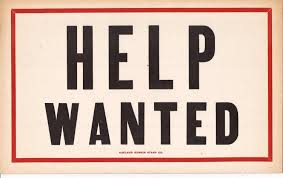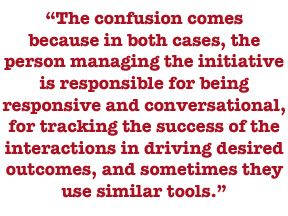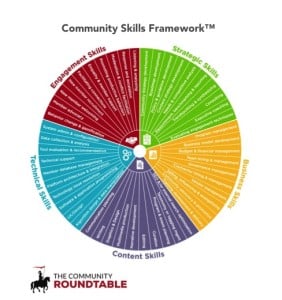By Shannon Abram, Relationship Manager at The Community Roundtable.
 I’ve already mentioned that we’re excited for all the new content, programming and research that 2015 will bring. Now, I’m extra excited to announce that to support all the new community initiatives we are undertaking we are also expanding TheCR team.
I’ve already mentioned that we’re excited for all the new content, programming and research that 2015 will bring. Now, I’m extra excited to announce that to support all the new community initiatives we are undertaking we are also expanding TheCR team.
In the past we’ve hired Community Fellows specifically for our research and community management teams, and this time we’re expanding both the scope and size of our search – we are currently seeking community fellows for our Research, Community Management and Sales/Marketing teams.
TheCR Fellowship program is designed to help the right candidate immerse themselves in the community management discipline and accumulate the expertise to qualify for community management roles after their time with us.
At a high level, each Fellowship will provide:
• Formal community management training
• Hands-on experience in community management, with a lens toward research, engagement or sales/marketing.
• Access to leading community management practitioners
• Direct access to potential employers
• The opportunity to work with a variety of organizations and brands
• Community management and business mentorship from TheCR team.
• A monthly stipend
While you can visit each job description above for more details for each position, the Fellow’s roles would generally include:
• Commitment of 35+ hours a week for at least 6 months and no more than 12 months
• Day-to-day tasks related to their role
• Special projects which, depending on the person’s skill set and interests, could be research, content, business development, marketing, or events projects
Why a fellowship and not a permanent hire?
As a small organization there are large risks for someone in deciding to work with us and there are risks for us in making a permanent hire. By providing training, access to market leaders, and a stipend to a fellow, we can ensure that she or he is very well positioned to find a great position with a larger organization at the end of the fellowship. To us, this creates a win-win-win for potential candidates, employers, and for us. It also serves our mission by enabling us to develop trained, experienced professionals for the market. We liked our last two fellows so much we hired them both into permanent roles, which is also a potential outcome of the fellowship.
Why a Fellowship at TheCR?
The Community Roundtable has been championing the discipline of community management for over five years. In that time we have built up frameworks, training and research that demonstrates the value of community and community management. We work with over 100+ leading brands and organizations and understand more about how communities are used and managed in business environments than any other organization. Because of our network and relationships, this is a great opportunity for the right person to meet and collaborate with our clients and members.
Learn More About Each Role
Do you have what it takes? Check out the open positions now:
While not a requirement for the right candidate, preference will be given to people within commuting distance from Boston.




